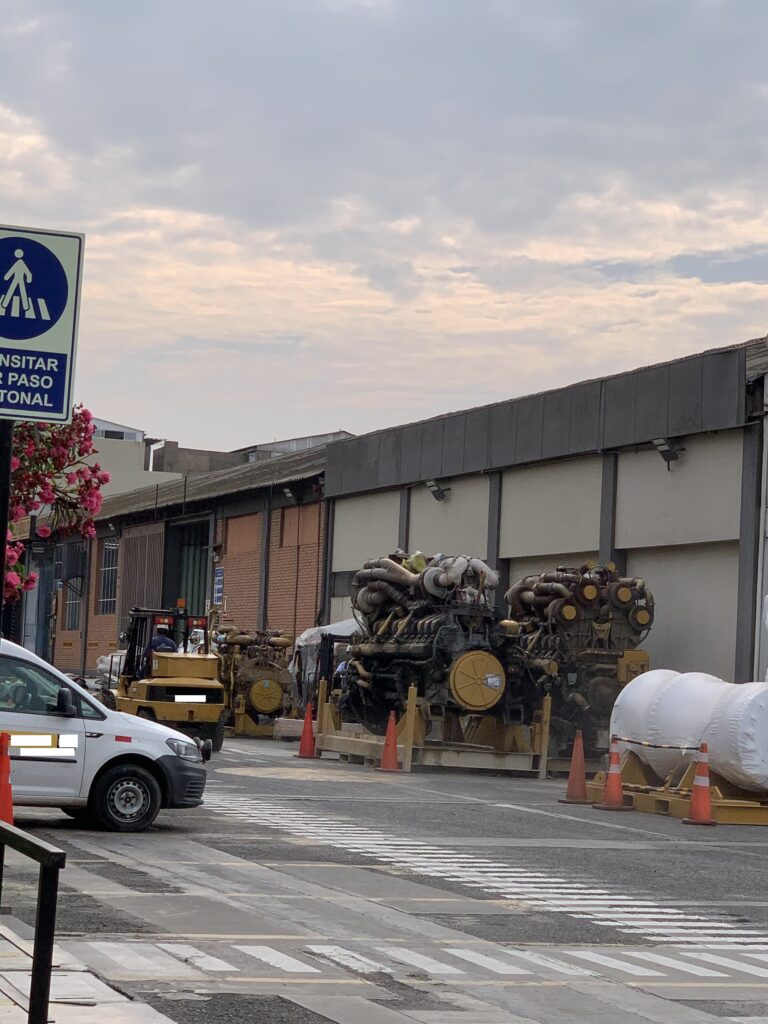- Products
PLATFORM
Core product and technology foundation.
-
Product Overview
See how ServiceCPQ transforms aftersales operations for manufacturers and service teams.
-
ServicecpqAI
New
Our advanced AI platform that powers intelligent service automation across your entire business.
-
AI Assistant
Let your team work faster with real-time support from our built-in AI helper.
- All Features
-
Product Configurator
Beta
Configure complex products and services with our intelligent recommendation engine.
-
Latest Release
Discover what's new — product improvements and feature launches.
Explore our full feature set — from claims to commerce to contracts.CORE CAPABILITIES
Everything your service business needs to run smarter and faster.
-
Warranty & Claims
Automate claim validation, reduce fraud, and track resolution timelines.
-
Repair & Workshop
Manage inspection, job cards, and repair workflows across your shop floor.
-
Parts & Inventory
Keep the right stock levels for service, with part kits, returns, and transfers.
-
E-commerce & Self-Service
Enable customers and dealers to order parts, track claims, and request support online.
-
Service Contracts
Build, sell, and manage preventive maintenance and full-service plans.
-
CPQ Configurator
Configure, price, and quote service contracts, repairs, and AMCs with ease.
AI POWERED SOLUTIONS
Explore our SolutionAI Assistant
24/7 Support Bot
AI Assistant: Your Aftersales Co-Pilot. Get instant answers & guided actions: claims, quotes, orders, inventory.12:54 -
Product Overview
- Solutions
Transform Aftersales with AI
Modernizing Service for Manufacturers.
Built on ExpertiseWhy Our Approach MattersDrive Business Outcomes Column Drive Business Outcomes
Customer EngagementService ProfitabilityEnhance Operational Efficiency Column Enhance Operational Efficiency
Agentic Repair AutomationPartner & Dealer Enablement - Industries & Use Cases
Industry Solutions & Real-World Use Cases
Discover how Servicecpq transforms aftersales for leading manufacturers across diverse sectors.
Tailored Solution for Manufacturers- Servicecpq delivers tailored, AI-powered solutions for the unique challenges of every manufacturing vertical.
Why Servicecpq?Tailored solutions by manufacturing sector.
-
CNC & Machine Tools
Offer part sales, repair quotes, and shop service for precision equipment.
-
Electrical & Solar
Manage claims, warranty validations, and service contract renewals.
-
Medical Equipment
Ensure compliance, track service calls, and manage spares for high-value assets.
-
HVAC, Compressors & Pumps
Streamline service partner claims, warranty tracking, and parts support.
-
Heavy Equipment
Optimize field repairs, workshop overhaul, and part availability for heavy equipment.
- Pricing

- Industrial Machinery
Is service the new sales?
My brother-in-law, who runs an electrical construction company, invited me to his office after the COVID restrictions were gone. We were meeting almost after a year and a half. While chit-chatting, he shared an interesting story about his experience, availing of services from an industrial manufacturer. Because I have spent a decade working for these kinds of companies building ERP and CRM solutions, I was all in to hear the other side - the end customer story.
His company was awarded a big contract - to do underground cabling at a prominent traffic junction. It was challenging for him because he was given just seven days to finish the work. His construction company has a couple of machines used to do the tunnelling work for underground cabling. On day 1, two hours into the digging work, one of the machines broke down. He started calling locally available resources to fix the machine, but no one could get it fixed by the end of the day. He panicked and started calling the manufacturer's call centre and the lady there promised to send someone within three days, but my brother needed someone urgently as he must finish the work in seven days. He tried all the means, but the problem couldn't be resolved.
After five days, the manufacturer sent a mechanic flown in from the capital region. The manufacturer cited the delay as the non-availability of the resources. After an hour-long diagnosis, the mechanic found the problem and asked my brother to order a few spare parts. The spare parts weren't available locally, so my brother asked for refurbished or remanufactured spare parts. But they were not available either. The manufacturer ordered the spare parts from an overseas plant. The requested spare parts were delivered after five days, and the machine was back in operation 13 days after the breakdown. He said it was a painful twelve days for him because of the location and the agency involved. The government authorities bashed him, and he lost a couple of projects because of this problem. His staff members were idle for thirteen days. It was a big loss for him. He promised himself not to buy that brand again for his operations.
This incident is a big lesson for manufacturers, who think service is an afterthought. The manufacturer lost its' customers' trust and the opportunity to sell new machines or services. If manufacturers assume that their primary responsibility is to produce and sell avant-garde machines and that service is an afterthought, they miss the point. Service is the new sales.
Imagine if the manufacturer had systems and processes in place - to identify the failure before it happened or if the manufacturer could fix the problem the day it occurred; it would have created a lot of goodwill for this brand. Our experience says that the service leaders trump the service laggards not in product characteristics but in helping their customers with the right services at the right time.
Service is the new marketing tool!
While doing some work in South America, the CIO called me to his office to discuss a new business model with his team. On one side of the table, there were people from new technology – sensor engineers, data analysts, condition monitoring analysts, and machine learning engineers and on the other side, there were sales managers and service heads.
The agenda was to understand how they work now. People from the new technology area often deal with digital alerts and notifications. The tech team sends details of the digital alert and the relevant actions or recommendations to the sales team. The sales team has to take takes action on the service recommendations. Most of the time, the sales reps send the service recommendations to their customers as it is, but sometimes they treat them like service leads.
The next day, we invited the end customers who consume these service recommendations. I asked one of the customers what he does with these service recommendations. He said that he deletes the alerts from his inbox because it does not say much except that the temperature is above a certain range or the silica level is high. What do we do with the alerts that don’t say what must be done? What is the cost of fixing or replacing? He said he needs information in advance to know about the services being offered, whether to replace or repair, arrange finances if the component must be replaced, schedule stoppage time and so on. Then he said something that was like an eye-opener for us and the CIO. Why do your company executives offer us something that we don’t need? The sales guys always propose to buy new machines and components whereas we need solutions for our day-to-day problems with the machines in possession.
Every business is unique. Hence a single sales approach applicable to all your customers may not work. Industrial companies do not buy products every day but they do consume after-market services every day. Hence a product sales approach to services may not work well in this industry. Today the service staff is the main point of in-person or on-premises contact with customers. The service technicians are ideally suited to support the sales force in identifying up- and cross-sales opportunities and confirming leads. Yet many companies struggle to set up the right environment to apply service technicians’ insights and develop the necessary capabilities to trigger the right conversations with their customers.
As products are becoming more digital, customer requirements are changing. Sales organisations must establish new ways to develop and sell solutions. Imagine how effective it would have been had the service engineers sold the service recommendations generated from the digital notifications. Every time your service engineers provide a “wow” customer service experience, adding an emotional angle to the experience of your customer, it’s marketing.
Grow Your Service Business
Ask for a Servicecpq demo today, or call us for a free consultation. We are genuinely interested in helping you grow.

